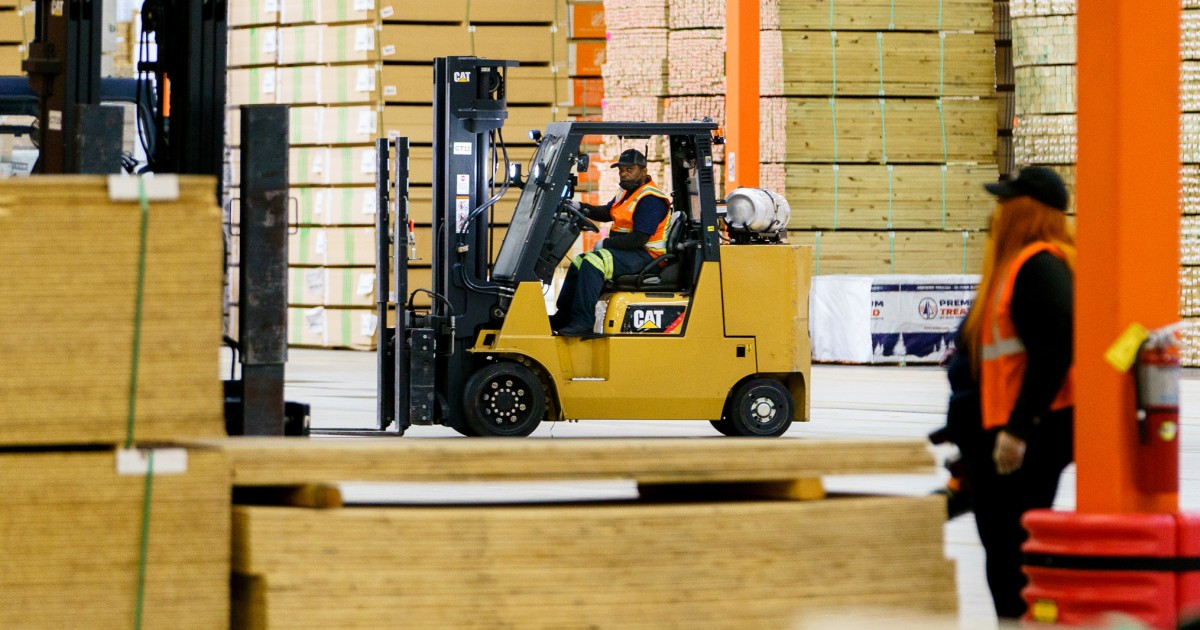
The economy added just 210,000 jobs in the month of November, the Bureau of Labor Statistics said Friday, and the unemployment rate fell to 4.2 percent from 4.6 percent.
Economists had been expecting a gain of 535,000 jobs and the unemployment rate to fall to 4.5 percent.
Friday’s release comes after payroll company ADP reported a gain of 534,000 private sector jobs in November, down from 571,000 in the previous month.
“It is unsettling to see that we were unable to build on October’s strong numbers, with uncertainty only set to increase as the winter progresses," said Steve Rick, chief economist at CUNA Mutual Group. "That said, it is not completely surprising that this month fell short, with the country preparing to respond to the omicron variant and continuing to battle rising inflation and the ongoing supply chain crisis.”
The omicron variant of the coronavirus has already led countries to impose new restrictions around international travel and triggered market volatility, with the major indices taking some of their biggest losses all year in recent days.
“It is still too early to see the impact of the omicron variant and how it will impact return-to-office and hiring plans, but this certainly bears watching,” said Bill Armstrong, president of Gava Talent Solutions.
Given that the reference week in which the BLS survey data is gathered fell before the discovery of omicron, some suggested that data from future months could map the variant's economic impact.
“The jobs recovery was kicking into high gear… Hiring demand is strong, and we know it’s broadly based,” said Andrew Flowers, lead labor economist at Appcast. “Going forward in December and January, that’s when we’ll see if there’s a material effect,” he said.
“Whenever cases rise, job growth slows, and if they rise far enough, job growth even turns negative,” said Julia Pollak, chief economist at ZipRecruiter. “But with each subsequent surge of the virus, the employment response has grown smaller… because we’ve learned how to respond in a more targeted way.”
Whenever cases rise, job growth slows, and if they rise far enough, job growth even turns negative.
Pollak said that job postings, even in fields like travel that have been hard-hit by previous Covid surges, remained robust, but new restrictions around international travel could change that dynamic. “There’s tremendous pent-up demand for leisure and hospitality,” she said, which had fueled strong gains over the past few months in this sector. “These travel restrictions now throw that into jeopardy,” she said, noting Wall Street’s pessimism about the potential for an omicron-driven slowdown. “We’ve seen the stock prices of ‘out and about’ industries fall,” Pollak said.
Economists predict that where omicron could inflict the most damage, though, is in holding down the lagging labor force participation rate. “The real problem is… can we get the labor force participation rate to change meaningfully?,” said Ron Hetrick, a senior labor economist at Emsi Burning Glass labor market analytics firm. “That is the primary thing holding us back.”
Federal Reserve Chairman Jerome Powell expressed surprise earlier this week that participation did not bounce back as expected when extended unemployment benefits expired and schools reopened.
“Even when we came out with vaccines, labor force participation remained the same,” Hetrick said. “The primary concern is, what is it going to take for these people to meaningfully engage?”
A depressed labor force participation rate has implications for wages and, by extension, inflation. With fewer workers to fill job openings, companies have to raise pay to compete, then increase prices to stay ahead of their expenses, a phenomenon economists call a wage-price spiral.
To the extent that omicron makes people less able or willing to come off the sidelines and re-engage with the workforce, the variant could add fuel to the inflationary fire.
“If it is a concern, yes, I would expect labor supply to be depressed in the December jobs report. That will have an effect,” Flowers said. “To what extent inflation is seeping into wage growth — that could be an early indication of a wage-price spiral ahead,” he said.
Economy added just 210,000 jobs last month, far below expectations - NBC News
Read More
No comments:
Post a Comment